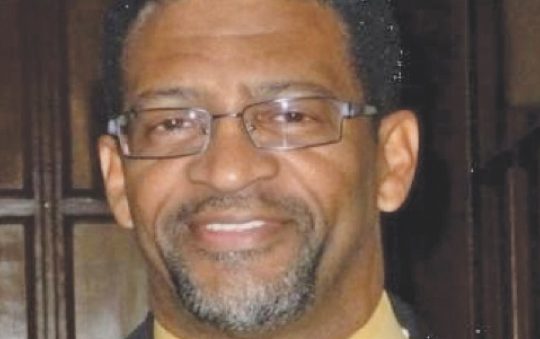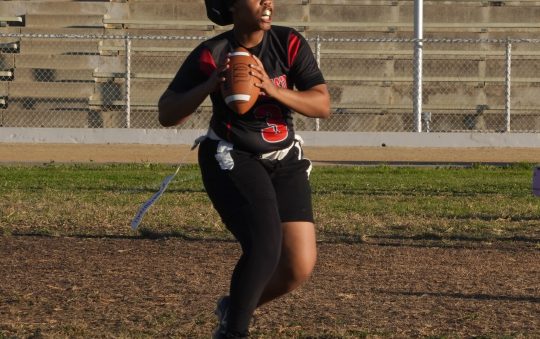
NBA dreams can be fleeting, keeping family first is the key
It was about four years ago the buzz was in the air about a freshman basketball prodigy here in the Southland named Marcus LoVett Jr.
He was a must see wonder child, so I finally caught up with him at Serra High School in Gardena.
A 5’7 slick lefty, capable of getting any shot he wanted and a master of wizard like passes that many of his teammates could not handle. He was all of that for sure and then some.
I introduced myself to his father and was invited to come to Muir High School in Pasadena to meet his family.
Basketball is the top sporting attraction for Blacks, and particularly those who reside in urban communities.
Frequently the talented can be recognized early, harnessed and capitalized off later down the line.
I’ve witnessed a few of them Schea and James Cotton, Tayshun and Tommy Prince, the Holiday’s of Campbell Hall High School, Justin, Jrue and Aaron and of course the Hamilton’s, Gary, Jordan, Isaac and Daniel.
Schea was arguably one of the greatest high school players in CIF history, James his older brother played in his shadow but made it to the NBA while the star brother never got his shot.
Tayshun starred at Compton Dominguez High as a freshman on a team that featured Tyson Chandler, but it was his brother Tommy who many considered to be the better of the two. Tayshun earned a scholarship to Kentucky, Tommy was rebuffed by UCLA and the rest is history.
The Holidays are considered basketball royalty, private schooling for the kids, Justin played at Washington and is now with the Golden State Warriors, Jrue starred at UCLA before going to the NBA as a sophomore and Aaron will be attending UCLA his fall after a heralded career at Campbell Hall.
Then there were the Hamilton’s, Gary played overseas after a college career, Jordan starred at Texas and is now with the Clippers, Isaac is with UCLA and Daniel a star at U Conn.
The one common dominator with each of these families is they had both parents working together steering the future of the aforementioned young ballers.
None of them had a father who was considered an NBA prospect in his own right, and none of them had to endure the trials and tribulations of Marcus Lovett Sr., whose life may have been saved by the mere birth of his son Marcus Jr.

Marcus Sr. was born and raised in Ft. Wayne Indiana and raised in a family dominated by an abusive father.
According to a 1995 Sports Illustrated article LoVett grew up amid both itinerancy and abuse. He shuttled between his parents’ hometown of Fort Wayne, Ind., and
Wichita Falls, Texas, where his father, Michael, settled right before he separated from Marcus’s mother, Debra, when Marcus was about 15.
His father frequently beat his mother and their three boys.
Debra had already had her first child, Michael Jr.; when she became pregnant with Marcus 11 months later, but she tried to abort him by drinking a potentially lethal homemade concoction, so bleak did she see the prospect of bringing
another child into her abusive world.
LoVett Sr. told the magazine he suffered a particularly nasty beating when he was eight. “It was one of those blows to the head where you black out for a second–everything goes dark–but your eyes are still open.”
Diagnosed with suffering from a severe learning disability, he struggled academically and his dreams of playing in the NBA were diminished after attending and starring on the lower realms of the collegiate surface.
LoVett Sr. always had the ability to verbally articulate, but could not translate it on paper, but he managed to excel in a General Conditioning class, which he says involved nothing more than checking into a weight room and working out.
He got an A. “At first I didn’t like it,” says LoVett Sr., who made
the honor roll with a 3.75 grade point average during that term
at Northwest-Shoals, “but I bought into it.”
Meanwhile, his girlfriend, Siria Beck, had become pregnant.
LoVett Sr. says that with a child on the way he sensed for the first
time the importance of getting more serious about school. Also,
with half of his basketball eligibility already gone, he hadn’t
yet had his chance to make an impression on the pro scouts.
That child turned out to be Marcus LoVett Jr., who as a freshman averaged 31 points per game at Providence High School in Burbank.
He would transfer to Ribet Academy and finish up at Morgan Park in Chicago on a brilliant note.
After an intense recruiting battle, he decided to commit to St. Johns University in New York.
LoVett Sr. has know new St. John coach and NBA Hall of famer Chris Mullin from his formative years, but knows that his son is the reason the relationship rekindled.
Lovett Jr. is a laser focused kid in the gymnasium and frequently will not speak to anyone other than family members or coaches before a game.
Junior is the oldest of two siblings, a young brother and a sister and they are frequently bound by the father and son love of the game of basketball.
During the moment I went to Pasadena, LoVett Sr. was conducting a workout with other aspiring basketball players, LoVett Jr. the obvious attraction.
However, the father paid equal detail to each of the participants.
LoVett has disciplined his own son for not maintaining his grades, even refusing to allow him to finish his season and a year of spring basketball.
To him, he is just his first child. No different than the other two expect that he be is exceptional on the basketball court.
He knows what that feels like from his own personal experience, and he is also aware of how fleeting a dream of playing in the NBA can be.
“My primary goal is to raise my kids to be the best people they can be and to maintain our family bond,” said LoVett.
He is providing his kids with something that he didn’t get as a child, unconditional love and attention.
LoVett Sr. also promised that his basketball-playing son would not forget where he came from.
“I want him to stay humble and I take him and my kids to the park where kids who can’t even play basketball are. They are regular kids and I want to keep them humble.”
A dose of humility that can go much farther than a bouncing ball on a basketball court.






